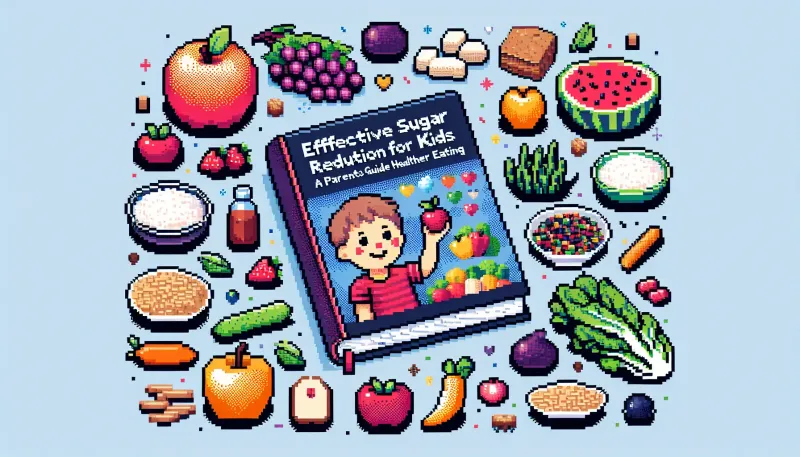Effective Sugar Reduction for Kids: A Parents Guide to Healthier Eating

Learn effective strategies for reducing sugar intake in your child's diet with this comprehensive guide. Promote healthier eating habits for a better future.
In today's fast-paced world, parents often struggle to ensure their children eat healthily. One significant concern is the high sugar content in many foods geared toward kids. Excessive sugar can lead to various health issues, including obesity, dental problems, and type 2 diabetes. This guide aims to provide actionable steps and valuable insights into achieving effective sugar reduction for your children.
Why Reducing Sugar Intake is Essential for Kids
The Health Risks of Excessive Sugar
High sugar consumption in children is linked to various health complications. These include weight gain, tooth decay, and an increased risk of developing type 2 diabetes. Moreover, high sugar levels can negatively impact a child's energy levels and their ability to concentrate, affecting their academic performance and overall well-being.
Nutritional Impact
Children who consume too much sugar are often not getting sufficient essential nutrients. High-sugar diets tend to lack necessary vitamins, minerals, and fiber. Consequently, this can affect their growth and development negatively.
Strategies for Reducing Sugar in Your Child's Diet
Read Nutrition Labels
One of the most effective ways to reduce sugar intake is by scrutinizing nutrition labels. Look for added sugars in the ingredients list, often disguised as high fructose corn syrup, sucrose, and cane sugar. Choose products with lower sugar content and more natural ingredients.
Prepare Homemade Meals
Preparing meals at home allows you to have better control over the ingredients. Incorporate whole foods like fruits, vegetables, lean proteins, and whole grains into your child’s diet. Homemade meals reduce reliance on processed foods, which often contain hidden sugars.
Encourage Healthy Snacks
Replace sugary snacks such as candies and pastries with healthier alternatives like fresh fruits, yogurt, and nuts. These options not only curb sugar cravings but also provide essential nutrients.
Practical Tips for Implementing Sugar Reduction
Gradual Reduction
Sudden dietary changes can be challenging, especially for kids. Gradually reducing the amount of sugar in their diet can be more effective. For instance, start by reducing the sugar in their cereals and gradually lowering it over time.
Education and Involvement
Educate your children about the benefits of a low-sugar diet and involve them in the meal planning process. When kids understand why reducing sugar is important, they are more likely to make healthier choices.
Set a Good Example
Children often emulate their parents’ eating habits. If they see you making healthy choices, they are more likely to follow suit. Make healthier eating a family affair.
Long-Term Benefits of Reducing Sugar Intake
By focusing on sugar reduction for kids, you are setting the stage for long-term health benefits. Reduced sugar intake can lead to better weight management, healthier teeth, and lower risks of developing chronic diseases later in life. Furthermore, a diet low in sugar can improve mood, energy levels, and cognitive function, contributing to overall better quality of life for your children.
Conclusion
Reducing your child’s sugar intake does not have to be an overwhelming process. By understanding the health risks, reading nutrition labels, preparing homemade meals, and encouraging healthy snacks, you can make meaningful changes. Gradual reduction, education, involvement, and leading by example are key strategies to ensure success. Implement these practices to promote healthier eating habits and ensure your child's well-being both now and in the future.



























